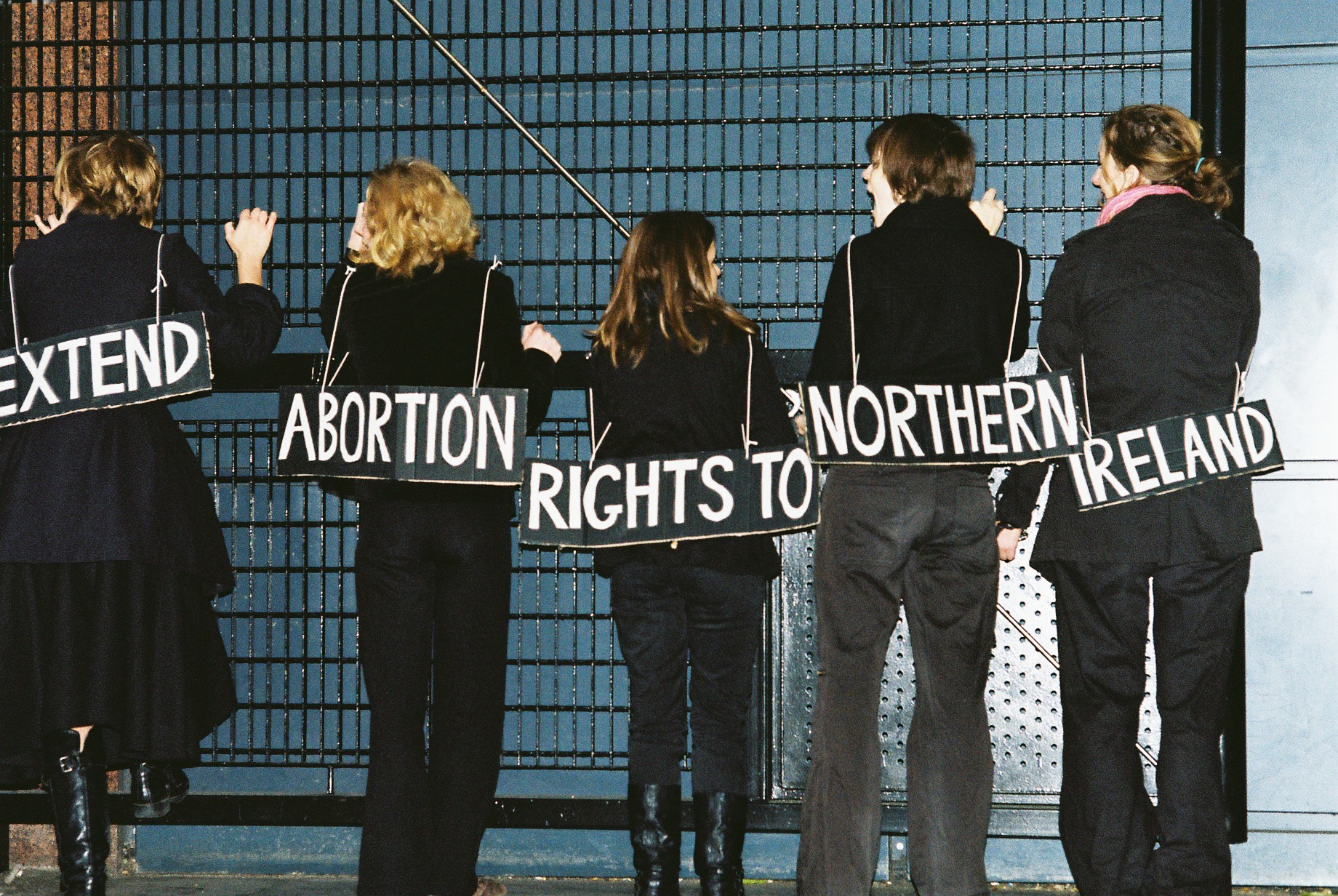Supreme court narrowly rules against Northern Ireland women free NHS abortions challenge

Demonstrators chaining themselves to Department of Health to ensure extension of Abortion Rights to Northern Ireland (feministfightback.org.uk)
The Supreme Court dismissed the appeals of two women, including a 15 year old, who challenged the legality of the failure to provide abortion services to women from Northern Ireland which free on the NHS in England in a narrow 3-2 decision. The women known as A and B, the young woman and her mother, will now be taking their appeal to the European Court of Human Rights.
The law governing abortion in Northern Ireland is one of the most restrictive in Europe, with abortion only being permitted in instances where the mother’s physical or mental health would otherwise be at risk. Women who are carrying foetuses with fatal abnormalities or who are pregnant as a result of rape or incest do not currently fall under this category, although this is currently being reviewed in the courts. The criminal sanctions imposed in Northern Ireland are amongst the harshest in the world, with the maximum sentence being life imprisonment.
The law does not, however, prohibit women in Northern Ireland from travelling to Britain for an abortion It is estimated that approximately 1,000 to 2,000 women do so every year – a situation countenanced and permitted by both the Northern Irish Assembly and central government – but they must go to private clinics. Terminating a pregnancy can subsequently cost up to £900, as it did for A and B.
A and B travelled from Northern Ireland to Manchester for an abortion at a private clinic in 2012 after A fell pregnant aged 15. As a low income family, the £900 cost, including travel, was a sum beyond their means and they were only able to raise the funds with financial support from the charity Abortion Support Network. However, the longer the abortion was delayed in order to raise the money needed, the further A’s pregnancy progressed. By the time she was able to terminate her pregnancy, the procedure was more physically invasive and distressing than if it had been performed as soon as A decided she wanted an abortion, with no costs to deal with.
The main issue in this case was not the abortion law in Northern Ireland, but rather the Secretary of State for Health’s current policy on restricting abortion services for women in Northern Ireland to private clinics only. Whilst the Health Secretary, Jeremy Hunt, accepts that it is within his power to arrange for abortion services to be provided for women from Northern Ireland through the NHS in England, he has refused to do so. A and B brought proceedings for judicial review, arguing that this refusal was unlawful. This has been dismissed by the High Court, the Appeals Court, and now, the Supreme Court joins them.
‘Deeply unenviable’
The majority decision, held by Lord Wilson, Lord Reed and Lord Hughes, ruled that whilst the Secretary of State for Health’s current policy did discriminate against those residing in Northern Ireland, the discrimination is justified within the scheme of devolved health services, with each member of the United Kingdom – England, Scotland, Wales and Northern Ireland – being responsible for providing free health services in their own countries. In other words, the issue of free abortions must be referred back to Northern Ireland. Lord Wilson did express his sympathy towards A and B, describing the plight of women in this stressful and traumatic position – restricted to carrying an unwanted pregnancy to term, procuring an illegal abortion in Northern Ireland, or trying to pay for an expensive private abortion in England that they may not be able to afford – as ‘deeply unenviable’.
However, the judgment was not unanimous, with two of the five judges – Lord Kerr and Lady Hale, in powerful dissenting judgments – finding that the discriminatory treatment unjustifiably breaches women’s rights under Article 14 (freedom from discrimination) and Article 8 (right to privacy and family life) of the European Convention on Human Rights.
In a statement issued after the decision, A and B said that they were ‘really encouraged’ by the two judges who found in their favour and that all of the judges were so sympathetic to their situation. They said: ‘We have come this far and fought hard because the issues are so important for women in Northern Ireland. For this reason, we will do all that we can to take the fight further.’
A and B were supported in their appeal by six intervening organizations, Humanists UK, Alliance for Choice, British Pregnancy Advisory Service, Birthrights, Family Planning Association and Abortion Support Network.
‘This case engages a woman’s basic right to choose what she does with her own body which as Lady Hale states “restores her autonomy and respects her dignity”,’ said Janet Farrell, solicitor at Bhatt Murphy representing Humanists UK. ‘Despite the deference afforded to the Secretary of State for Health by the majority judgment, the dissenting judgments of Lord Kerr and Lady Hale are robust and heartening in their recognition not only of the double standards at play but of the core underlying values at stake, including the requirement for equal treatment, autonomy and dignity for women.’






